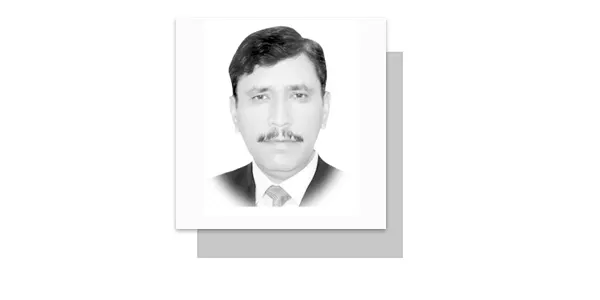IN a dramatic turn of events, the political landscape in Pakistan has taken an intriguing twist, with the Istehkam-e-Pakistan Party (IPP) joining the chorus of critics labelling Nawaz Sharif as the ‘favourite’ while pointing accusatory fingers at the Election Commission. Imran Ismail, a seasoned leader of the Istehkam Party and former Governor of Sindh, seized the spotlight in a media conference, not only lambasting the Election Commission’s role in Sindh but also boldly asserting that the Commission has forfeited both its integrity and impartiality. Ismail went on record, alleging that the Chief Election Commissioner has taken on the appearance of a politically inclined operative rather than embodying the neutrality expected from a government official. This latest development adds a fresh layer of complexity to an already volatile political environment, raising questions about the anticipated fairness and transparency in the oversight of electoral processes.
The condemnation voiced by the Istehkam Party echoes a chorus of critiques from the Pakistan Tehreek-e-Insaf (PTI) and the Pakistan Peoples’ Party (PPP), escalating tensions and fostering suspicions about the credibility of electoral institutions. This united front of dissenting voices against the Election Commission not only threatens to erode public confidence in the electoral process but also deepens the existing lack of trust in state institutions. The repercussions of this collective discontent may resonate far beyond the immediate political landscape, potentially sowing seeds of skepticism that endure and further shake the foundations of democratic faith among the populace.
The general election, set for February after the Supreme Court’s intervention, seem to have evolved into a fiercely contested arena. With political analysts and parties closely scrutinizing the electoral proceedings through the lens of transparency, the role of the Election Commission has come under intense scrutiny. As reservations against the Election Commission continue to mount, judicial intervention emerges as a potential solution to this burgeoning crisis. The Supreme Court, if it chooses to step in, could address the concerns voiced by political parties, dispel doubts and bolster confidence in the electoral system. Alternatively, the Election Commission itself could take proactive measures to dispel misconceptions surrounding its role within political circles.
Against this backdrop, Nawaz Sharif’s return to the political arena, after four years in exile has injected a new dynamic into the political narrative. Instead of heading back to prison, Sharif opted to take the stage, addressing rallies with a triumphant style and solidifying political alliances across the country. His resilience in facing legal challenges has not gone unnoticed. The implications of Sharif’s political manoeuvres are not lost on rival parties, particularly the PPP, which had hoped to fill the void left by the absence of the Pakistan Muslim League-Nawaz (PML-N) supremo from the country’s political horizon. However, Sharif’s strategic political moves shattered those assumptions, reshaping the political balance by luring PPP’s opponents in Sindh and making significant inroads in Balochistan.
Should reservations persist among political parties regarding the electoral process and if a level playing field is not ensured, there is a looming possibility of a united front forming against the PML-N. While the specific reasons for such a coalition remain unclear, creating a space for dialogue becomes imperative. Given the evolving political landscape in Pakistan, engaging opponents is a pragmatic approach. Without a united front, serious challenges from the disgruntled groups may emerge after the election results. The absence of reform measures could create an atmosphere of uncertainty post-election, particularly in the face of economic crises and the burden of taxes on the public.
In the realm of elite capture, another potential scenario is also likely: some disgruntled parties are made to collude with the favourite to partake in the benefits. As an illustration, Asif Ali Zardari recently took his son, the Chairman of the PPP, to task for bemoaning the absence of a level playing field, asserting that the electoral environment is not unsound and no institution bears responsibility. It’s entirely plausible that Imran Ismail’s frustration may dissipate into thin air, especially if Jahangir Tarin is approached from the right quarters. This likelihood gains traction due to the entrenched oligarchy in Pakistan, where inner conflicts are discreetly resolved.
In the unpredictable game of politics, where possibilities abound, the remarkable rise and fall of PTI serve as a recent chapter, not a tale from the distant past. The tragicomedy unfolds as the self-serving oligarchy persistently obstructs every avenue that could potentially elevate the living standards of the masses. A poignant example of this paradox lies in the system of local governments, ostensibly backed by constitutional authority but callously discarded into the dustbin by civilian governments, deeming it nothing more than a relic of dictatorship.
Undoubtedly, the Election Commission shoulders the crucial task of alleviating the mounting distrust that surrounds its operations. Yet, its mandate extends beyond merely ensuring an equitable electoral landscape. It encompasses the vital role of enforcing compliance with the rules governing the political arena. This underscores a broader imperative for political parties – to seek public endorsement not solely through rhetoric but via concrete strategies for societal betterment. A comprehensive and transparent roadmap for executing these plans post-election becomes pivotal, encapsulating a commitment to genuine progress and responsive governance.
—The writer is politico-strategic analyst based in Islamabad.
Email: riaz.missen@gmail.com
views expressed are writer’s own.










